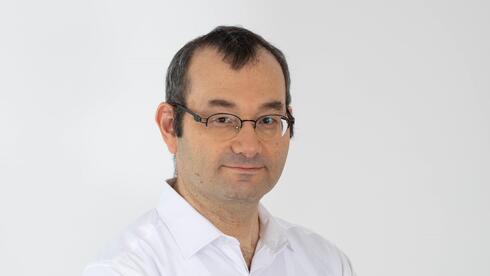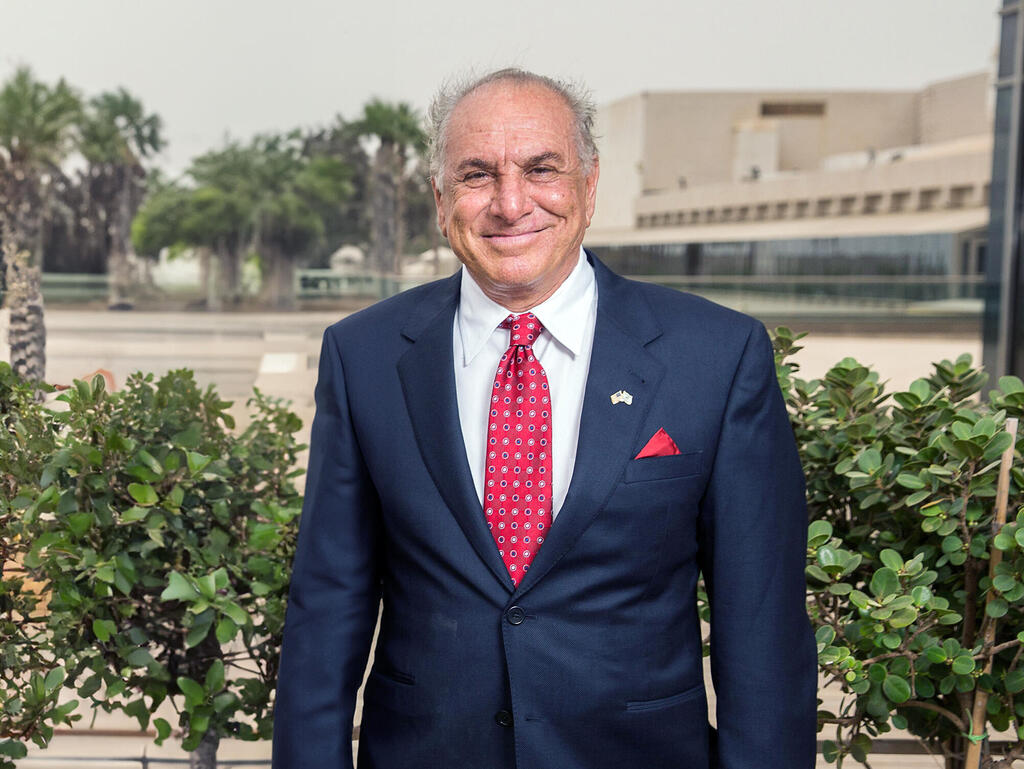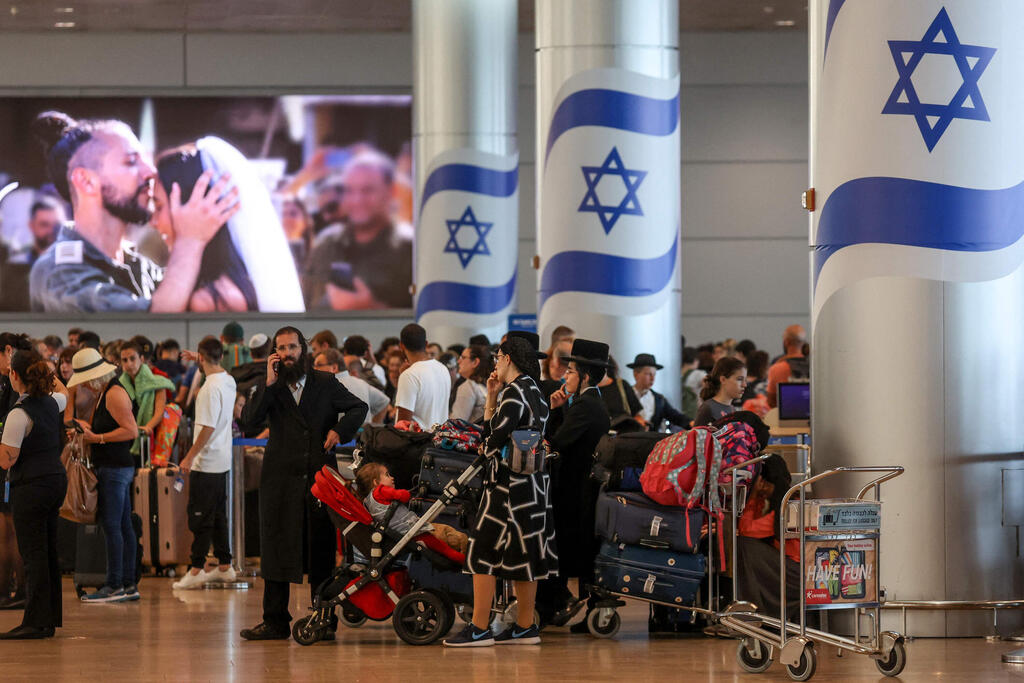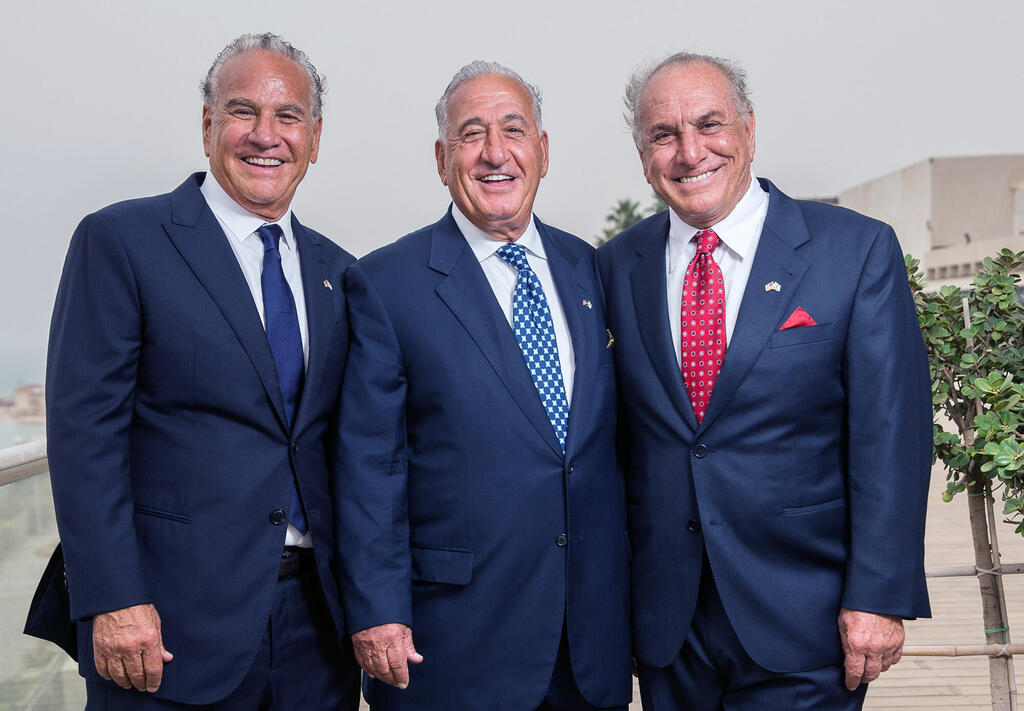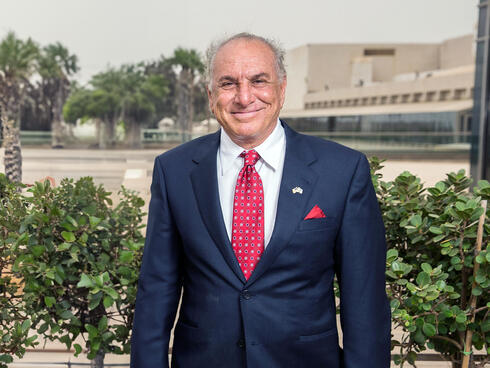
War-time business: How Arkia's Avi Nakash justifies sky-high ticket prices
Avi Nakash, one of Arkia's owners, defends the airline's decision to charge $800 for a ticket to Athens when foreign companies have halted flights. He explains it as a way to balance the financial losses from the pandemic and the war, asserting that showing solidarity shouldn't mean losing money.
The Nakash brothers—Avi, Joe, and Rafi—who made their initial fortune with the Jordache fashion chain, currently own approximately 70% of Arkia Airlines in Israel, 50% of the real estate and finance group Ampa, the lease and management rights of Eilat Port, as well as dozens of hotels in Israel and overseas, including the Orchid, Herbert Samuel, and Setai chains. Coincidentally, or perhaps not, all of their holdings in Israel are directly affected by the ongoing war and the continued tensions with Hezbollah and Iran.
Avi, let's start with Arkia. You and your brothers control the airline, which is currently under criticism for raising ticket prices during the security tensions and taking advantage of the fact that foreign airlines have stopped flying here, leaving you with almost no competition.
"When I sell a ticket to Athens for $80, while my cost is $140-$150, no one comes and tells me, 'Maybe we'll reimburse Arkia.' There are also periods when we lose money. We sold tickets for two days at $800 when foreign companies canceled flights and demand was huge, instead of the usual $250 in peacetime. El Al sells an economy ticket to New York for $4,000-$5,000, while in peacetime such a ticket costs $1,000. So why isn't anyone talking about El Al?"
True, El Al also benefited from being a monopoly, but that’s not appropriate.
"Let El Al do what it thinks is right; it's a free market. A flight is not bread you have to eat to survive, so its price shouldn’t be fixed. When people want to travel or return from a trip, they pay what is necessary. During the war, everyone sold according to demand."
These are people who were stuck abroad and wouldn’t have agreed to such a deal in advance if they had known. And this is at a time when the price of jet fuel, the main component of flight costs, has generally decreased.
"And when fuel goes up by 5%? We absorb it. If you bought a ticket to Rome for two months from now and in the meantime fuel prices increase by 10%, we won’t come to you and ask for another 10% of the ticket’s value. These things happen—sometimes to our benefit, sometimes to the buyer's.
"And why are people stuck abroad? Because the foreign companies left. This highlights the importance of supporting Israeli companies. As soon as there's one missile, everyone runs home, and we stay here and do the work."
Where is the solidarity? The public feels that the airlines have become greedy.
"And should we lose money? There were also times when we incurred losses. So if it’s possible to make some money—and in aviation, making 2% profit is a lot—that’s the story. During the pandemic, when nobody was flying, I paid wages to my employees while the government didn't provide financial support. So there should be fairness."
Didn’t the government help during the pandemic?
"It lent me money, and I had to pay it back."
So is wartime the time to earn big?
"You don’t make much profit, and what you make doesn’t cover the losses of October when nobody flew. Airlines don’t make millions relative to their turnover."
How do you set flight prices?
"According to demand. It’s usually computerized, like booking a hotel. You might offer a flight to Rome for $250, sell 100 seats, and if there are 70 unsold seats left, you lower the price. Or vice versa, if we’re selling well and only 70 seats remain, the price goes up."
You also own the concession and management rights of the Port of Eilat, which has been shut down since the war began.
"There is zero activity there, and this is a very big problem."
Perhaps Hezbollah's threat to Haifa will divert cargo ships south to Ashdod, and it’s possible that the Port of Eilat will also become active if some of the volume moves there. After all, a ship from Europe can reach Eilat via the Mediterranean without risk.
"A ship from Europe unloading cargo in Eilat? And then, since there’s no train to the north, we have to transport goods with 100 trucks at very high costs? I don't see that happening, but the port’s director general knows more about this than I do."
160 workers at the port are under threat of dismissal because there is no work, and they have no other solution.
"Maybe an unpaid vacation is a solution."
You’ve owned the concession to operate and manage the port for eight years, and since the Houthi threat, there has been no activity. Does it make you regret the deal?
"No regrets at all. Eventually, this crisis will end."
You also own hotels, including the Orchid, Herbert Samuel, and Setai chains. This is another industry suffering significantly at this time.
"Tourism from abroad is almost zero, and domestic tourism doesn’t cover the costs because even when it exists, it’s usually only on weekends. So the price we pay is high and has been for a long time. But I do think we’re seeing the end, that after the big boom of reactions from Iran and Hezbollah, there will be silence.
"Being a businessman during wartime is not a pleasure. There’s a Chinese proverb I learned in Hong Kong: 'One person's disaster is someone else’s happiness.' Sometimes you find yourself on the other side of the equation."
Speaking of the other side of the equation, you’ve filed a lawsuit on behalf of the group companies against Avi Hormaro, who has been the chairman and CEO of the companies you lead in Israel for decades. You claim that he took advantage of the trust placed in him to illegally transfer shares and rights in his name. On the other hand, he claims that your accusations are baseless, that everything was done legally, and that there is no cause of action against him. More than that, he claims that everything was done with the approval of your brothers, who are part owners but are not part of the lawsuit against him.
"He was also the chairman of the board, both issued a decision and signed it. In a matter like this (transferring shares), you can’t make a decision for yourself and then sign and confirm it for yourself. That’s not how it works. He says that Joe and Rafi verbally approved, but you need to see how much written confirmation backs that up."
And if there is?
"My brothers and I have the same connection to the companies, and as far as I know, none of us is allowed to give such approval. We commissioned a report from a lawyer who is an expert witness, and in the summary, it’s written that Hormaro took shares and money for himself without approval. So they say, 'This one approved, that one approved.' In short, I don’t think a judge will dismiss a claim worth millions of shekels for shares worth hundreds of millions that were transferred without approval."
Some say that the lawsuit reveals a problem between you and your brothers, Rafi and Joe. Are you still on good terms?
"There is a disagreement between us, but we still communicate. We’re in a 50-year business partnership. We all agree that Hormaro took shares and property for himself without permission. What we don’t agree on is the resolution, what to do about it."
If he acted improperly, wouldn’t he be out of the company by now?
"He’s still with the company because, according to the agreement, he has to return shares worth NIS 100 million. Some think—though it doesn’t matter who—that the solution is to take it now without going to court. But I say, 'OK, but he has to go.' So there are differences of opinion between the brothers about whether he should leave and when, but there’s no disagreement about what he did."
If you reached an agreement, why file a lawsuit?
"The claim is that more should be returned. The agreement they reached with him is for NIS 100 million, though I was not in favor of it."
Joe said the CEO did a good job. He seems to be siding with Hormaro, not you.
"We were very successful in Israel mainly because of my and Joe’s ideas. Yes, Hormaro did a good job, but along the way, he took shares and property for himself without permission. This is called robbing the company."
You’ve lived in Israel for 25 years. In light of the situation, do you have thoughts of joining your brothers in the United States and leaving the Middle East?
"I live here; I have a 25-year-old child and a 6-year-old child, and I don’t even think about leaving. I came here to live; this is my life. It’s not something I do begrudgingly. For me, this is the best place in the world to live. What makes life fulfilling is not the size of the car, the house, or how much it costs, but being able to go out, drink coffee, and see people who are your people. That’s what makes it Israel. Someone once told me, 'I want my children to also sing the classic Israeli folk songs.' That won’t happen if you raise children in the United States."
Are you afraid of a missile attack?
"No. I live in the Orchid Hotel in Tel Aviv, which we own, and the drone that hit Shalom Aleichem Street in the city passed by my house, which is next to the American Consulate. It was a boom that shook the building. But maybe the assassination of Haniyeh is a deliberate provocation, a trigger for something bigger—after they bomb, we bomb them, and perhaps we can end the story of the Iranians' nuclear weapons."





